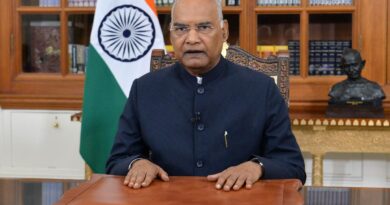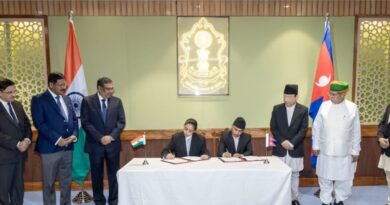Greece: Migration Policy Having “Suffocating Effect” on Human Rights Defenders Says UN Expert
(Spécial Correspondent)
ATHENS (22 June 2022) – Greek authorities must move towards a policy on migration that puts human rights and support for human rights defenders at its core, a UN expert said today.
“Geopolitical circumstances and a lack of support by the EU have led to questions being posed of Greece that many other States have not been asked concerning migration,” said Mary Lawlor, UN Special Rapporteur on the situation of human rights defenders, in a statement at the conclusion of a 10-day visit to the country.
“The Government’s current approach to the issue is defined by its framing of migration as a matter of security and prevention,” Lawlor said. “What this has fostered for refugees, asylum seekers, migrants and the human rights defenders acting in solidarity with them, is an atmosphere of fear – particularly a fear of criminalisation.”
Lawlor was appointed by the UN Human Rights Council to promote the implementation of the UN Declaration on human rights defenders across the globe. She visited Greece on the invitation of the Government from 13 to 22 June to assess the situation of those working to promote and protect human rights in the country.
The Special Rapporteur held meetings with government ministries in Athens, while also traveling to Lesvos, Chios, Samos, and Thessaloniki to speak with local authorities. She held discussions with police commanders, prosecutors, the Hellenic Coastguard and representatives of international organisations.
She also visited facilities in which refugees and asylum seekers are accommodated. In every location, Lawlor held meetings with human rights defenders.
“Defenders in the country working to ensure the rights of refugees, asylum seekers and migrants are respected, are currently under severe pressure. This includes migrants themselves, who face heightened risks when undertaking human rights work,” the UN expert said.
“At the tip of the spear are prosecutions, where acts of solidarity are reinterpreted as criminal activity, specifically the crime of people smuggling,” Lawlor said. “The negative impact of such cases is multiplied by smear campaigns perpetuating this false image of defenders.”
The policy was having a “suffocating effect” on civil society in Greece, the Special Rapporteur warned.
Lawlor said the climate of fear and insecurity created by this policy was reinforced by elements of the legal framework, in particular the discriminatory NGO Registry for organisations working on migration, and statements from high-ranking Government representatives attacking and undermining the work of human rights NGOs.
Those working to document and prevent the grave practice of pushbacks are particularly at risk, the expert said. Pushbacks force refugees and migrants back over a border without consideration of their individual circumstances or the opportunity to apply for asylum.
She also expressed concerns about the situation of LGBTI and women’s rights defenders in the country, as well as investigative journalists working on human rights issues – particularly migration and corruption. The Special Rapporteur urged Greece to embrace the role of champion for the rights of these groups, and to work with them to develop pathways towards a more positive environment for their work.
“Governments and the societies they are elected to represent have much to gain from the recognition and promotion of the work of human rights defenders. Greece is no exception,” Lawlor said. “I urge the Government to approach all those working for the promotion of human rights in the country openly, and as allies, no matter the issues concerned.”
The Special Rapporteur will present a full report on her visit to the Human Rights Council in March 2023.




